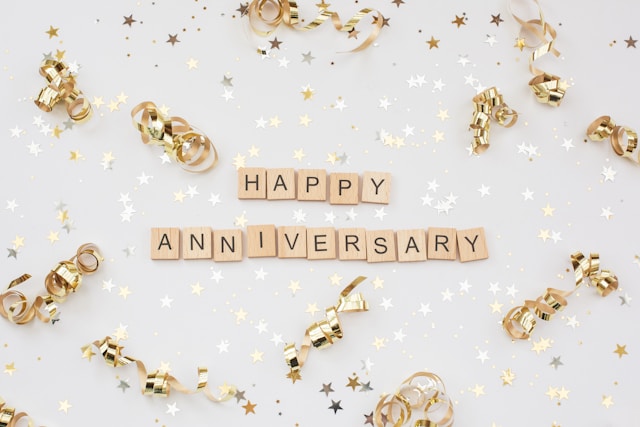I’m not grateful for the pain I experienced from my husband’s betrayals, but I cherish the benefits I’ve experienced thus far on my healing journey. Regardless of what happens in my marriage, these benefits are mine to keep. I started this journey because I wanted to heal from the pain and learn more about sex addiction. However, the benefits surpassed my original expectations.
Healing helped me improve how I managed my life. My journey quickly became more about me and less about my husband. After I learned about my husband’s addiction, I knew I didn’t cause it. However, I could see how my coping tactics enabled my husband’s addiction. My desire to be a better version of the person God always intended me to be was a driving force in my healing. I had to change how I showed up in all my relationships, including my relationship with myself.
Previously, I shared how I became a “make-do” woman before I knew what was going on in my marriage, swallowing my insecurities, uneasiness, and resentments telling myself I was being strong! As a result, I failed to recognize I was surviving in an unhealthy marriage. In light of the disclosure, I began making myself voice my feelings, uneasiness, and needs. However, I didn’t want to exist in my marriage as a “make-do” woman anymore; I deserved something more.
Creating boundaries was the first thing I did to consider what I needed to feel safe in the marriage. Knowing the answers to that question enabled me to create a safe environment for myself. I could not control whether my husband adhered to my boundaries, but I could control my response if he rejected them. The best way to honor me was to speak my truth regardless of how my husband received it. (I will publish a future blog entry regarding boundaries.) I was committed to following through with my boundaries if my husband broke them, which was incredibly empowering. I knew I had choices if my husband slipped or relapsed.
Another benefit was my relationship with God. I am a Christian, but I’d be lying if I said my trust in God has always been 100%; my trust has been a challenge. I spent many years as a “hopeful” Christian versus a “believing” Christian. However, I couldn’t heal from the pain as a “hopeful” Christian. My belief that God would be by my side was the encouragement I needed to approach my healing journey as if my life depended on it.
I also committed to “not accepting unacceptable behavior.” It took time for me to realize the moment I accepted my husband’s porn habit before and after the first affair, I accepted “unacceptable behavior.” After healing from the first affair, I told myself, He could have his porn since he wasn’t having sex with anyone, or so I believed. In retrospect, I justified and rationalized my husband’s behavior. Additionally, I minimized and denied the impact his porn habit was having on my sexual self-esteem and my comfort in the marriage.
Some partners may not have an issue with their partner watching porn; they may even enjoy watching it with their partner, but please understand my husband’s porn viewing became a habit, not an occasional occurrence. First, my husband expressed shame and embarrassment when I caught him watching porn. Eventually, my husband didn’t convey any emotion or provide any explanation for watching porn; things were changing. Finally, I verbalized how I felt about it, but he continued to watch porn anyway, making my husband’s porn habit “unacceptable” to me.
Not accepting “unacceptable behavior” has become a lifestyle for me. I recently quit a job I liked because of how I was being treated but not before making it known that my treatment was unfair and unacceptable. I have also complained about the poor service I received in different situations and spoken up for myself when necessary. My children have observed this, and I hope they realize you do not have to accept “unacceptable behavior,” You can call people out in a way that is still respectful and direct without being nasty.
Another benefit was releasing the illusion of control. Accepting my husband’s porn habit and having sex with him when I did not always feel like it to prevent him from taking his porn habit further was controlling behavior. Of course, none of my efforts kept my husband from taking his porn habit to other levels; I did not know this then. Once I received the disclosure, I thought shaming and cussing my husband would make him realize how badly he hurt me. I was trying to expedite my husband’s ability to be emphatic towards me and recognize the damage he caused- I was controlling.
It was freeing when I realized the only person I could control was myself. It became much easier to put energy into my healing; I didn’t have to take responsibility for my husband’s recovery. I could observe my husband’s efforts from afar without inserting myself into his program. There was no way I could have juggled the work required for my process and my husband’s. If I had, I wouldn’t be where I am today. One of the biggest lies we can tell ourselves is that we can control another, especially an addict.
Realizing I needed others on my journey was also helpful. For example, I was not excited about attending support groups; I had preconceived notions about people who attended support groups. Visions of a bunch of whiney, sad, weak women telling me how to tolerate my husband’s behavior made me uneasy about attending support groups. Thankfully, I was very wrong because if that had been the case, I wouldn’t have continued attending support groups.
Instead, I found fellowship with others, experiencing pain, shock, disbelief, anxiety, and depression. We genuinely cared for each other, which often resulted in joy, laughter, and understanding. There is nothing like being in a room where you can share the ups and downs of betrayal trauma healing with people who get it. These people were trying to heal just like me.
Some were new to the process, and some were further along, but I gained so much from each person. Veterans in the groups always had experience, strength, and hope to share, which I needed. Some veterans were divorced, and some were still married, but all exhibited calm about their future. I wanted to feel that calmness. (I will post a future blog regarding support groups.)
As the pain started to decrease, the healing benefits increased. I was rediscovering strength I forgot I had, which I needed; I had an obligation to heal emotionally, spiritually, and mentally for myself, my children, and my future. Although I was recovering from betrayal trauma, I knew I could not live the rest of my life as a “trauma victim”; there had to be more to my identity than that. I began to feel more like a betrayal trauma survivor. Fortunately, there are times I feel more like a betrayal trauma thriver.
Another valuable benefit of my healing journey was my ability to live in awareness of the areas in my life and marriage that still needed improvement and the areas that were improving. I have learned many lessons along the way, and there are still more to discover because I do not believe one ever graduates from the healing journey. For example, I am aware that I can still be reactive, fearful, and self-reliant at times (a.k.a. not trusting God enough). Resentment still creeps up from time to time, making vulnerability with my husband difficult, whichI am currently working on this with my therapist. I also have to practice being in the present every day. Living in this awareness reminds me I am a work in progress, not perfection.
My ability to trust myself is one of the benefits I value the most. Being married to a sex addict slowly diminished this ability over the years, which I find incredibly sad. I always knew something was off in the marriage, but I would dismiss those thoughts and concerns. However, once I received my disclosure, I realized I should have paid more attention to those feelings of unrest. Every time I dismissed those feelings of uneasiness, I rejected myself. So, I committed never to ignore myself or my intuition again. Today, I check in with my heart, body, and God when there is something I do not have peace about or if I feel unsettled.
Healing from betrayal trauma isn’t a death sentence. Instead, you can choose to make the benefits of your healing journey a part of your life moving forward. It’s not fun recovering from pain caused by another, but if the healing offers long-term benefits, why not relish it? These are the most important aspects of my healing lifestyle today:
- Not being a “make-do” woman
- seeing a therapist
- lovingly sharing my boundaries with others when appropriate
- listening to myself
- seeking God’s guidance through prayer and meditation
- attending a support group and working on the 12 steps of S-ANON
- relinquishing control of what I cannot control
- committing to improving myself out of self-love
- seeking help from others when I need it
- not accepting “unacceptable behavior.”
- Attending a Restorative or Gentle Yoga class
- journaling
This lifestyle is how I show love towards myself. My life is better, not perfect, because of the effort I put into my healing journey. I want to resemble a firmly rooted tree that sways and bends when challenges occur, a tree that does uproot itself in reaction anymore. My healing lifestyle isn’t set in stone because as I change and grow, so do aspects of my healing lifestyle. For example, I may not always do restorative yoga or see a therapist.
I’ve shared some of the most valuable benefits I have experienced on my healing journey. These benefits have helped me be a better parent, sister, daughter, neighbor, employee, wife, and friend. My journey has been bumpy with setbacks, which is why it is called a journey, not a “straight shot.” Thankfully, I have always been able to get back on track. Today, I know I can deal with whatever challenges come my way because I am healthier than I was nine years ago. I am grateful for how far I have come thus far with the anticipation of better chapters; for that, I am genuinely, profoundly grateful.
#BetrayedNotBroken




